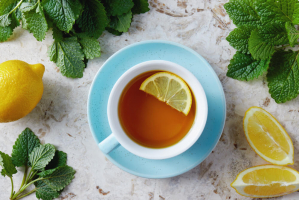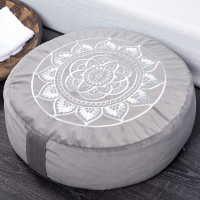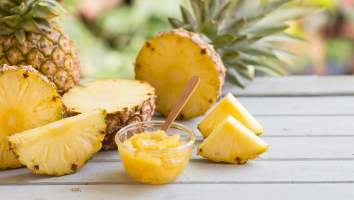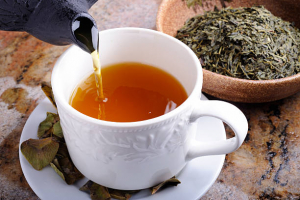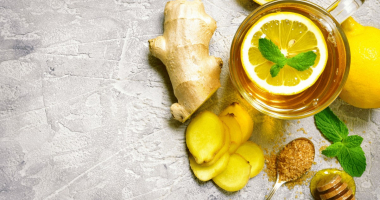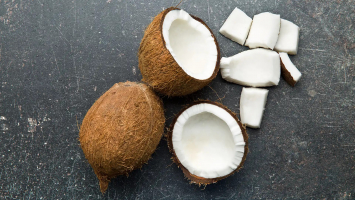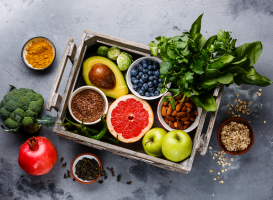Top 8 Best Herbal Teas to Help Reduce Bloating
You are not alone if your abdomen occasionally feels large and unpleasant. Bloating affects 20-30% of the population. Food intolerances, gas accumulation in ... read more...your stomach, unbalanced intestinal flora, ulcers, constipation, and parasite infections are all potential causes of bloating. To reduce bloating, people have traditionally employed natural therapies such as herbal teas. According to preliminary research, various herbal teas may help relieve this unpleasant condition. Here are the finest herbal teas for bloating relief.
-
Peppermint, or Mentha piperita, is well known in traditional medicine for its ability to ease intestinal discomfort. It tastes cold and energizing. Studies on animals and in test tubes indicate that plant substances called flavonoids, which are present in peppermint, may decrease mast cell activation. These are immune system cells that are common in the stomach and can occasionally cause bloating. Additionally, peppermint relaxes the stomach, according to tests conducted on animals, which may help to reduce intestinal spasms and the associated bloating and pain.
Peppermint oil pills may also help with stomach discomfort, bloating, and other digestive issues. Bloating has not been studied with peppermint tea. According to one research, a single tea bag provided six times the amount of peppermint oil as a dose of peppermint leaf capsules. As a result, peppermint tea might be rather strong. Peppermint tea is available as a single ingredient or in tea blends designed for stomach comfort. 1 cup (240 ml) boiling water, 1 tablespoon (1.5 grams) dried peppermint leaves, 1 tea bag, or 3 tablespoons (17 grams) fresh peppermint leaves Allow for a 10-minute steep before straining.

Peppermint 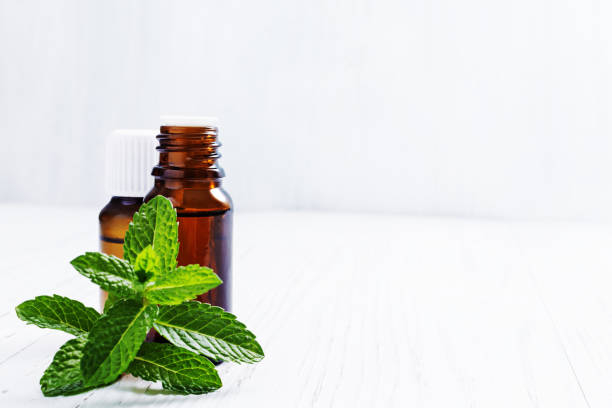
Peppermint -
Since lemon balm (Melissa officinalis) is a member of the mint family, the tea has a lemony flavor and aroma as well as notes of mint. Based on its historic use, the European Medicines Agency reports that lemon balm tea may treat minor digestive disorders, including bloating and gas. Iberogast, a liquid supplement for digestion that comprises nine distinct herbal extracts and is marketed in North America, Europe, and other locations as well as online, contains lemon balm as one of its main ingredients.
According to various human studies, this substance may help with stomach discomfort, constipation, and other digestive issues. However, the benefits of lemon balm or its tea on digestive disorders in individuals have not been studied independently. More investigation is required. 1 tablespoon (3 grams) dried lemon balm leaves — or 1 tea bag — steeped in 1 cup (240 ml) boiling water for 10 minutes
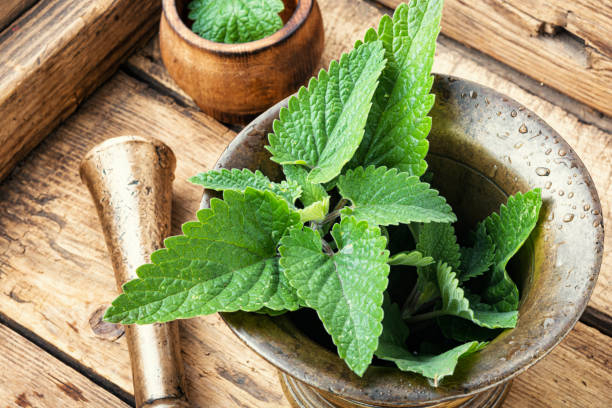
Lemon balm 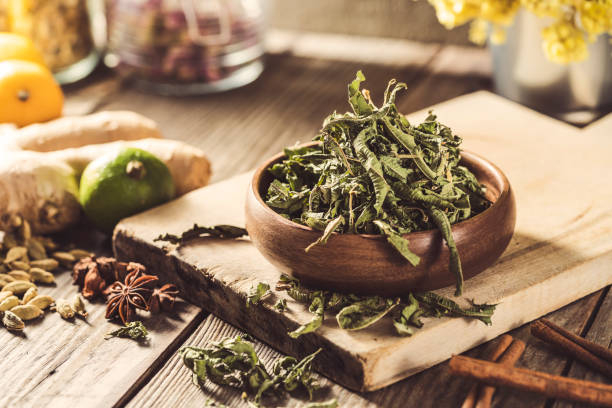
Lemon balm -
A bitter tea is made from the green, leafy plant wormwood (Artemisia absinthium). Although it requires some getting used to, you may mellow the flavor with honey and lemon juice. Wormwood is occasionally used in digestive bitters because of its bitter flavor. These bitter herbs and spices are included in the supplements, which may promote digestion. One gram dried wormwood capsules, according to human research, may help prevent or treat indigestion or upper abdominal pain. By encouraging the flow of digestive fluids, this plant helps improve a healthy digestion and lessen bloating.
According to animal and test-tube studies, wormwood may also destroy parasites, which can cause bloating. Wormwood tea, on the other hand, has not been studied for its anti-bloating properties. More investigation is required. To make the tea, steep 1 teaspoon (1.5 grams) dry herb in 1 cup (240 ml) boiling water for 5 minutes. Wormwood, in particular, should not be taken during pregnancy because it contains thujone, a chemical that can trigger uterine contractions.
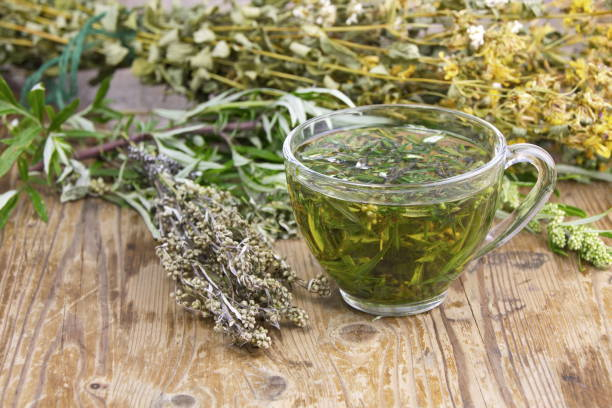
Wormwood 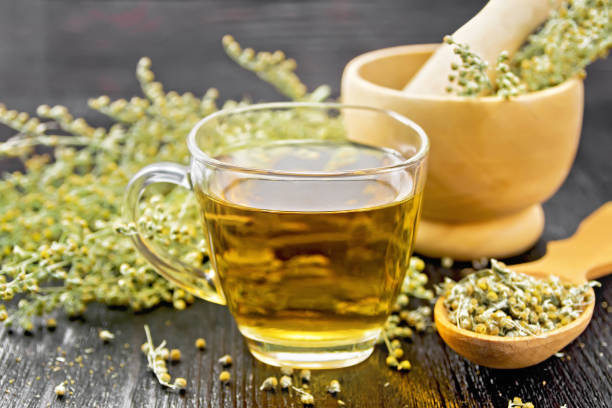
Wormwood -
Since ancient times, stomach-related disorders have been treated with ginger tea, which is brewed from the thick roots of the Zingiber officinale plant. According to human research, consuming 1-1.5 grams of ginger in staggered dosages throughout the day may help with nausea. Supplemental ginger may also hasten stomach emptying, ease digestive discomfort, and lessen intestinal cramps, bloating, and gas. It should be noted that these research didn't use tea, but rather liquid extracts or capsules. The therapeutic components of ginger, such as gingerols, are also present in its tea, however additional research is required.
To brew tea, add 1/4-1/2 teaspoon (0.51.0 grams) finely powdered, dried ginger root (or 1 tea bag) to a cup (240 ml) of hot water. 5 minutes to steep Alternatively, use 1 tablespoon (6 grams) fresh, sliced ginger per cup (240 ml) water and bring to a boil for 10 minutes before straining. Ginger tea has a peppery taste that may be mellowed with honey and lemon.
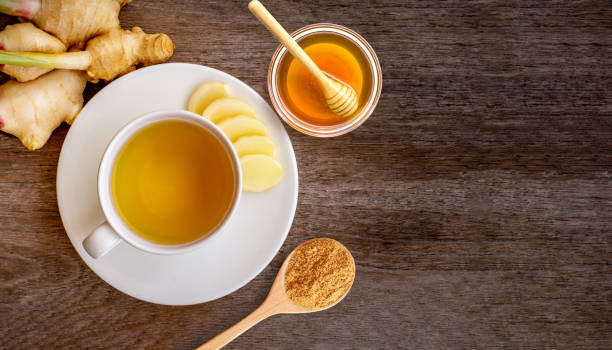
Ginger 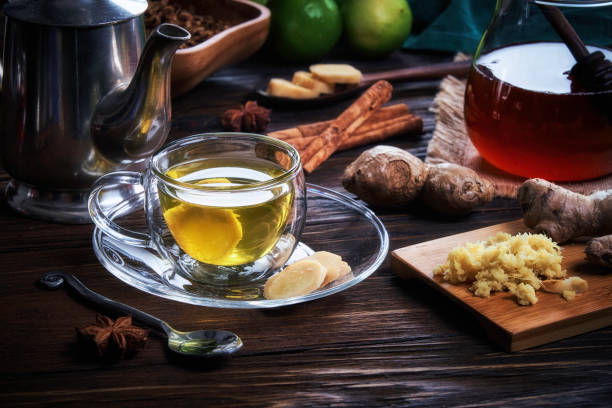
Ginger -
Fennel seeds have a licorice-like flavor and are used to create tea. Fennel has long been used to treat digestive issues like constipation, gas, bloating, and stomach discomfort. Fennel extract therapy helped protect against ulcers in rats. Your risk of bloating may decrease if you prevent ulcers. Another cause of bloating in some people is constipation. Therefore, one of fennel's possible health benefits—relieving constipation—might also help with bloating. Nursing home residents who suffered from chronic constipation experienced an average of 4 more bowel movements over the course of 28 days when they drank 1 daily cup of a herbal tea mix containing fennel seeds as opposed to those who took a placebo.
Human trials on fennel tea alone are still required to demonstrate its digestive effects. If you don't want to use tea bags, you can purchase fennel seeds and smash them to make tea. 1-2 teaspoons (2-5 grams) seeds per cup (240 ml) boiling water Allow to steep for 10-15 minutes.
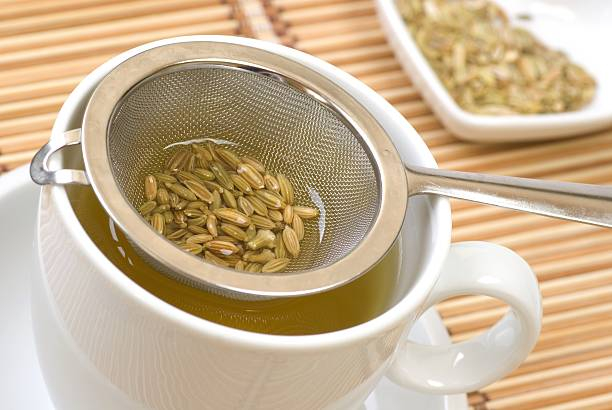
Fennel 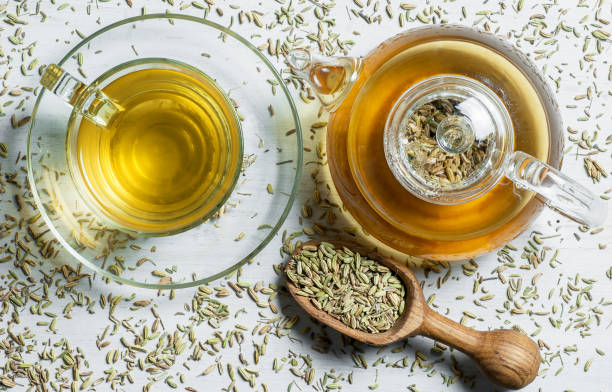
Fennel -
The Gentiana lutea plant, which has deep roots and yellow blooms, is the source of gentian root. The tea may have a pleasant flavor at first, but it soon becomes bitter. Some people love it blended with honey and chamomile tea. Gentian root has long been used in herbal teas and medicines intended to treat bloating, gas, and other digestive problems.
Gentian root extract is also utilized in digestive bitters. Gentian includes bitter plant chemicals, including as iridoids and flavonoids, that promote the production of digestive fluids and bile to aid in the breakdown of meals, perhaps alleviating bloating. However, the tea has not been studied in people, and it is not recommended if you have an ulcer since it might increase stomach acidity. As a result, additional investigation is required. Use 1/4-1/2 teaspoon (1-2 grams) dried gentian root per cup (240 ml) boiling water to prepare the tea. Allow to steep for 10 minutes.
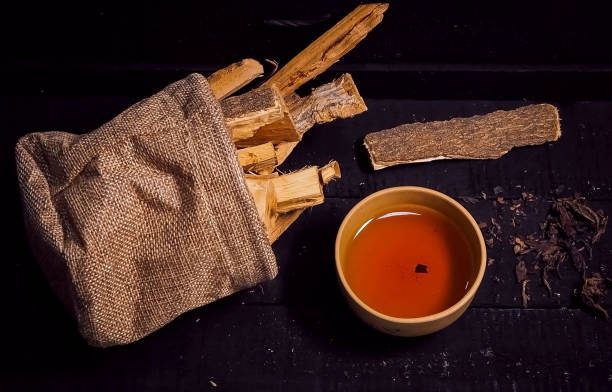
Gentian root 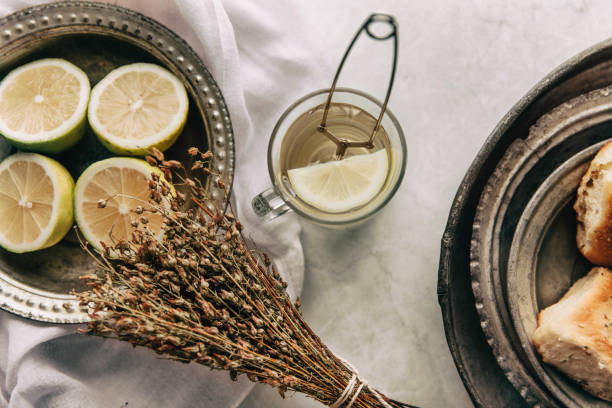
Gentian root -
The daisy family includes chamomile. The herb's tiny, white blossoms resemble daisies in miniature. In conventional medicine, chamomile is used to treat ulcers, nausea, vomiting, diarrhea, gas, and indigestion. Studies on animals and in test tubes indicate that chamomile may shield against Helicobacter pylori infections, which are linked to bloating and the development of stomach ulcers. The herbal medication Iberogast, which has been proved to help lessen stomach discomfort and ulcers, also contains chamomile as one of its ingredients. The digestive advantages of chamomile tea still need to be confirmed in human trials.
The main beneficial components, including flavonoids, are found in chamomile flowers. Check to see if the dried tea is prepared from flower heads rather than leaves and stems. Pour 1 cup (240 ml) of heated water over 1 tablespoon (2-3 grams) dried chamomile (or 1 tea bag) and simmer for 10 minutes to produce this lovely, somewhat sweet tea.
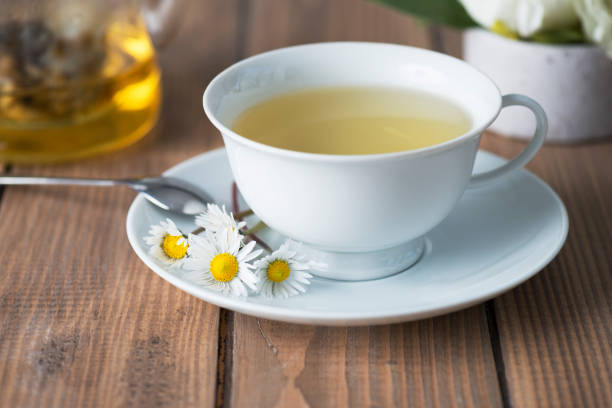
Chamomile 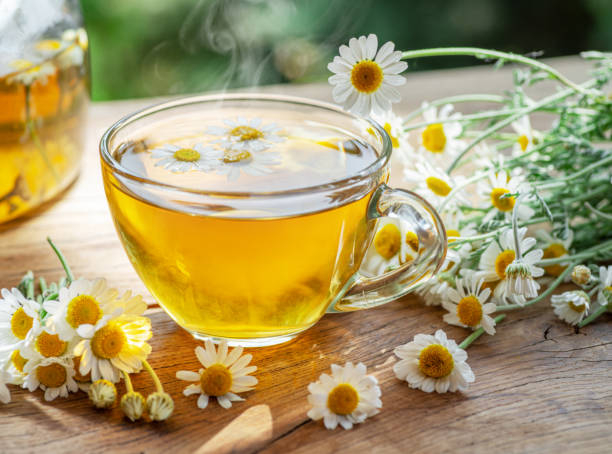
Chamomile -
The Angelica archangelica plant, a member of the celery family, provides the roots used to make this tea. The bitter flavor of the plant is improved by steeping it with lemon balm tea. Iberogast and other herbal digestion medicines employ angelica root extract. The bitter elements of the plant may encourage digestive fluids to support good digestion. Additionally, studies on animals and in test tubes suggest that angelica root may treat constipation, a factor in bloating.
More human study on this root is required in general. According to some authorities, angelica root should not be taken during pregnancy because there is insufficient research on its safety. To ensure optimal care, please check your doctor before using any herb during pregnancy or during nursing. 1 teaspoon (2.5 grams) dried root per cup (240 ml) boiling water is a standard serving of angelica tea.
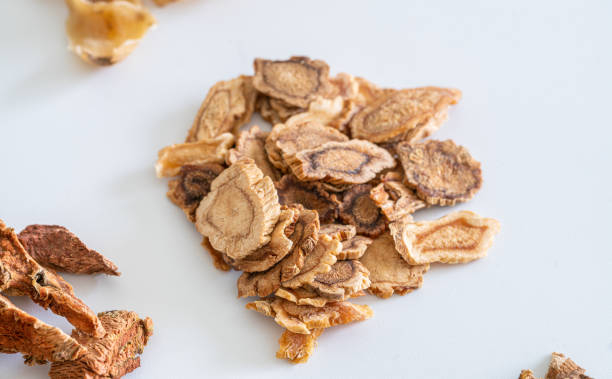
Angelica root 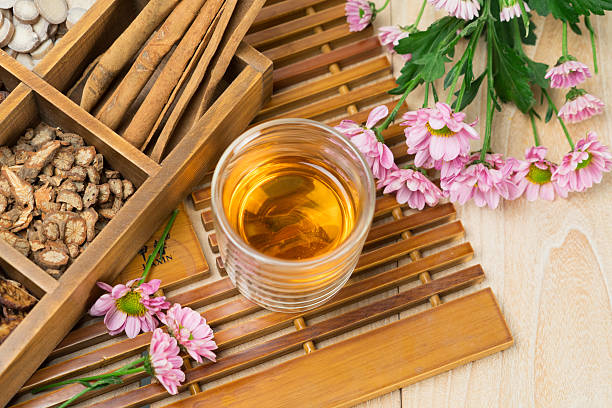
Angelica root










